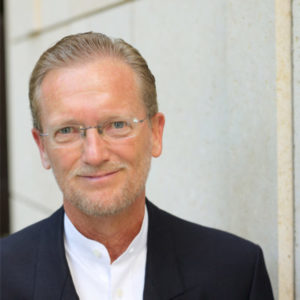SLS’ Rule of Law Pro Bono Project Advises Moldova on Anti-Corruption Prosecutions
A team of Stanford Law students recently submitted a report to the Chief Anti-Corruption Prosecutor of Moldova outlining procedures and strategies for the country to consider in order to avoid delays in its prosecution of corruption cases.
Erik Jensen, director of SLS’s Rule of Law Program and lecturer, supervised the four-month-long pro bono project, which resulted in Justice Delayed: Countering Dilatory Tactics in Moldova’s Anti-Corruption Prosecutions, an analysis of how other European countries effectively manage defense tactics such as abusive motions, delay tactics, and frivolous requests. Moldova is looking to strengthen existing procedural safeguards against the threat of anti-corruption defendants using sophisticated, concerted delay tactics. The report was delivered to the Chief Prosecutor for Corruption in August 2023.

“Judicial procedures must strike a balance between access to justice by well meaning parties and judicial efficiency in the face of abusive actions,” Jensen says. “Abusive motions and delay tactics not only drain judicial resources, they allow defendants to game the judicial system and to continue to benefit from their allegedly ill-gotten gains. Moldova is working on numerous fronts to battle endemic corruption in the country and it was a great honor for the SLS team to be able to contribute in this way.”
Moldova’s Chief Prosecutor at the Anti-Corruption Prosecution Office, Veronica Dragalin, is a dual American-Moldovan citizen who was formerly a U.S. Attorney for the Central District of California. She was chosen to lead Moldova’s Anti-Corruption Prosecution Office in August 2022 and has made transparency and rule of law key objectives. Moldova was granted European Union candidate status in June 2022 and has set a target date of 2030 for EU accession.
“We took a broad yet detailed look at the ways in which a number of European countries implement often-highly nuanced safeguards against abusive requests,” says Sarah Manney, JD ’24, a research assistant in the Rule of Law program who led the project along with Katherine McCreery, David Mollenkamp, Olivia Morello, and Saseen Najjar (all JD ’25). “Our report laid out a host of best practices for Moldova to consider against the backdrop of the fact that the right to a fair trial in a reasonable time is fundamental to societies governed by the rule of law.”
Using available criminal procedure codes and constitutional court acts, the report looked at a wide swath of countries in Europe, particularly those which have dealt with similar challenges to Moldova involving corruption and organized crime. The SLS authors analyzed procedures, criteria, and safeguards related to three types of motions with particular risks of abuse: judicial recusal motions, case transfer requests, and constitutional exceptions. To further understand the European norms and values at issue, the pro bono team also looked at guidance by EU institutions such as the Venice Commission, the European Court of Justice, and the European Court of Human Rights.

The practices set forth in the report are intended to guide policymakers in Moldova as they weigh the competing needs for judicial access and efficiency, in light of the fact that recent high-profile anti-corruption prosecutions have been delayed or derailed by frivolous motions. For example, the report explained that many countries institute high evidentiary standards for making recusal, transfer, or constitutional question motions. These standards help ensure that requests are well supported by documentary evidence, grounded in proper procedure and jurisdiction, and worthy of a court’s time. The report also analyzed the safeguard of time limitations, either on the parties’ submissions, the court’s deliberations, or both. Noting the delicate balance that needs to be struck and the fact that timelines which are too short may impede under-resourced parties’ ability to mount a case, the report sets forth a number of case studies for Moldova as it considers how to best implement reasonable time limits to avoid egregious delays of justice. The report also looked at a handful of countries that implement policies such as fines, reprimands, and other penalties for parties or their representatives who make groundless claims or cause improper delays.
“We learn about why procedure is important in law school, but it’s rare to see these questions at the heart of a country’s struggle to promote the rule of law,” Manney says. “It’s even rarer to be able to play a part in those considerations, so we are incredibly grateful to Prosecutor Dragalin and Professor Jensen for making this possible.”
